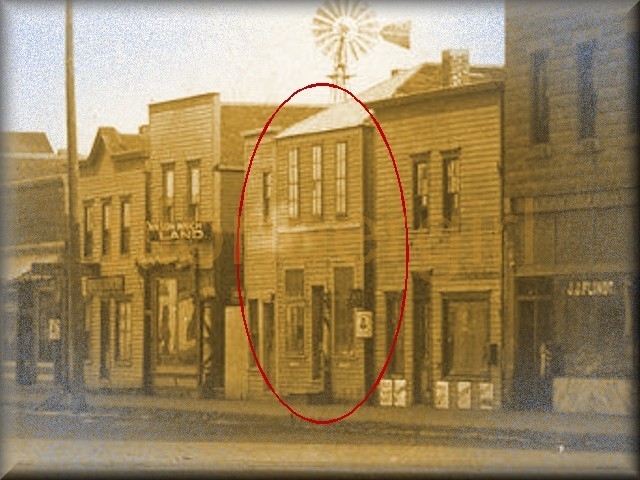Will Bennett

Laura’s classmate in De Smet, one of the younger boys in school.
 James F. Watson, Edwin R. Dow and Charles W. Bennett, all attorneys of this place, have formed a partnership for the practice of law with headquarters at De Smet. This will make a powerful combination and will be able to make a clean sweep in their line. They will have a fine suite of offices in the Kingsbury County Bank building, fully equipped with everything needful in their business. Success to the firm of Watson, Dow and Bennett. -Kingsbury County Independent, May 1893
James F. Watson, Edwin R. Dow and Charles W. Bennett, all attorneys of this place, have formed a partnership for the practice of law with headquarters at De Smet. This will make a powerful combination and will be able to make a clean sweep in their line. They will have a fine suite of offices in the Kingsbury County Bank building, fully equipped with everything needful in their business. Success to the firm of Watson, Dow and Bennett. -Kingsbury County Independent, May 1893
 Not a character in the Little House books, Will Bennett is mentioned in Pioneer Girl as a younger boy in the De Smet school. Will was said look blankly at the teacher when asked a question. Mr. Seelye put up with it, but Mr. Owen whipped it out of him! A similar story was given to the Willie Oleson character in Little Town on the Prairie (see Chapter 23, “Schooltime Begins Again”).
Not a character in the Little House books, Will Bennett is mentioned in Pioneer Girl as a younger boy in the De Smet school. Will was said look blankly at the teacher when asked a question. Mr. Seelye put up with it, but Mr. Owen whipped it out of him! A similar story was given to the Willie Oleson character in Little Town on the Prairie (see Chapter 23, “Schooltime Begins Again”).
Charles William Bennett was born in Iowa in 1873, one of twelve children of Mary and Elisha Bennett. The Bennett family came to De Smet in 1880, Mr. Bennett purchasing Lot 12, Block 2, just south of Chauncey Clayson (Mr. Clancy in the story) on the east side of Calumet, where Bennett ran a grocery store (shown on the navigation button that brought you to this page). The Bennett building was not torn down until 1968.
Will may have pulled one over on his teachers (temporarily, at least), but he was by no means witless. After completing his studies in De Smet, he studied law and was a practicing attorney in De Smet, briefly in partnership with E.R. Dow, husband of Mary Cooley Dow, aunt of George and Paul Cooley from On the Way Home. Mary’s brother was Paul and George’s father, Frank Cooley. Will married Francis Willett, whose family had a claim near Lake Thompson; he also invested in the De Smet livery. Will and Francis had two daughters.
Will’s father Elisha, a Civil War veteran, died in 1893 and was buried in St. Thomas Catholic Cemetery in De Smet. His mother Mary continued to live in rooms over the building on Calumet until purchasing the surveyors’ house in in 1902, where she lived until her death in 1911. In 1894, Will and his family moved to the Sioux City area briefly, moving in the early 1900s to Ontario, Canada, where he was a land and business locator for western Canada. After several years, he sold his business for a large profit. In 1906 he incorporated Bennett Canadian Theatrical Syndicate, which owned and operated over 250 theaters in cities across Canada. So successful was Mr. Bennett that his operation was second only to the Keith Agency in New York. Bennett’s theaters were popular for both vaudeville acts and moving pictures. When interviewed, Will Bennett stated that he owed his success to two principles: (1) never disappoint, and (2) never offend. He censored all acts performing in his theaters, allowing no vulgarity or suggestive comedy. Cuthbert Allen wrote in the January 1906 Theater Magazine (page ix) that “Bennett’s Vaudeville Theater forms a cheerful haven of refuge from out the dreary slough of local dramatic stagnance, and citizens are well aware of the fact. From the first raising of its curtains in September up to the present date a continuous round of first class bills has almost invariably been the offering.”
In 1907, Will Bennett moved the head offices of Bennett Theatrical Syndicate to New York City. Will returned to De Smet for his mother’s funeral and to attend Old Settler’s Day in 1917. He died in New York in 1918.

Will Bennett (PG)

